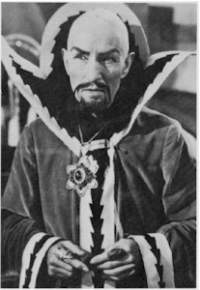 Mahmoud
Mahmoud Short RoundAhmadinejad said on Friday that a new Middle East is being created which will be free of the United States and Israel, as he backed uprisings rocking the Arab world and warned Egyptians to beware of America.
Massive crowds of Iranians, waving flags and chanting: "Death to (Egyptian President Hosni) Mubarak!" and: "Death to America™!" descended on Tehran's Azadi (Freedom) Square to listen to the hardliner, who lashed out at the West and Israel in a speech marking the 32nd anniversary of the Islamic revolution.
"We will soon see a new Middle East materialising without America and the Zionist regime and there will be no room for world arrogance (the West) in it," Ahmadinejad told the cheering crowds, who gathered despite the cold and cloudy weather.
In a speech directed in good part at the Arab uprisings, Ahmadinejad said Egyptians needed to be careful of the United States.
"They (the United States) have adopted a friendly face and say 'we are friends of the people of North Africa and Arab countries', but be watchful and united. You will be victorious... but your path of resistance is a lengthy one," he said.
"The Iranian nation is your friend and it is your right to freely choose your path. The Iranian nation backs this right of yours."
Iran, which has no diplomatic ties with Egypt, has backed mass protests there, now in their 18th straight day, with supreme leader Ayatollah Ali Khamenei urging the people to establish an Islamic regime in the Arab world's most populous nation.
The expressions of support came despite the deadly crackdown launched by the Iranian authorities when hundreds of thousands erupted into the streets of Tehran and other cities to protest against official results giving Ahmadinejad a second term in a June 2009 presidential election.
Dozens of Iranians were killed, hundreds maimed and scores nabbed by security forces during the protests which shook the pillars of the Islamic regime.
The Iranian authorities have also been jamming the BBC's Persian-language television channel, the broadcaster said on Friday, linking the move to its coverage of the protests in Egypt.
"This jamming should stop immediately," the director of the BBC World Service, Peter Horrocks, said.
"The events in Egypt are being viewed by the entire world and it is wrong that our significant Iranian audience is being denied impartial news and information from BBC Persian TV."
BBC Persian was also the victim of extensive jamming during its coverage of the anti-Ahmadinejad demonstrations of 2009.
Ahmadinejad appealed to the messianic beliefs of Iran's majority Shiite faith, saying the world was witnessing a revolution overseen by Imam Mehdi -- its 12th imam who disappeared as a five-year-old in the 10th century and who the faithful believe will return before judgement day.
"The final move has begun. We are in the middle of a world revolution managed by this dear (12th Imam). A great awakening is unfolding. One can witness the hand of the Imam in managing it," said Ahmadinejad, wearing his trademark jacket.
 He hit out at the United States, calling it an "accomplice to the oppression of the Zionist regime."
He hit out at the United States, calling it an "accomplice to the oppression of the Zionist regime.""If you want people to trust you, first of all do not interfere in affairs of the region, including in Tunisia and Egypt. Let them be by themselves," he said.
"Come and take away the Zionist regime which is the source of all crimes... take it away and liberate the region. Free the region and give it to the people and take this regime, which is the child of Satan (the United States), out."
Chants of "Egyptians, Tunisians, your uprisings are just and we are with you," and "Hosni Mubarak 'mubarak' (congratulations) on the uprising of your people!" rang through the streets as the crowds marked the anniversary of the 1979 revolution which toppled shah Mohammad Reza, a key US ally.
Diplomatic relations between Tehran and Washington were broken off soon after and remain so to this day.
During last year's anniversary rally, Iran's opposition attempted to stage anti-government demonstrations which were crushed by the authorities.
Since then opposition supporters have stayed off Tehran streets but their leaders Mir Hossein Mousavi and Mehdi Karroubi have sought permission to hold a rally on Monday in support of the Arab uprisings.

 Iraqi cleric Moqtada al-Sadr extended indefinitely a ceasefire for his Mehdi militia on Thursday and ordered his followers to protest peacefully against the U.S. occupation.
Iraqi cleric Moqtada al-Sadr extended indefinitely a ceasefire for his Mehdi militia on Thursday and ordered his followers to protest peacefully against the U.S. occupation. Rose pedals shower dead lovers
Rose pedals shower dead lovers I'm starting to get really interested in this story, even though it doesn't make a lick of sense.
I'm starting to get really interested in this story, even though it doesn't make a lick of sense.